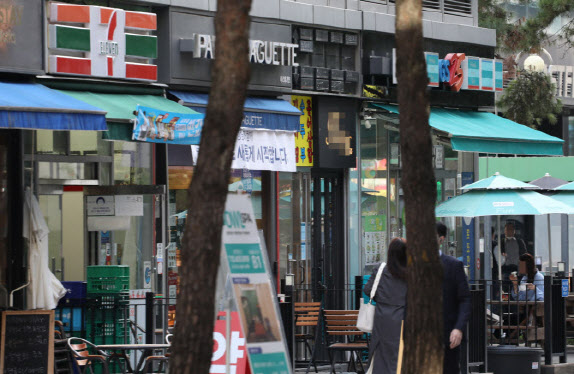Again, the sales of cigarettes with high sales without making profits acted as an obstacle. In addition, according to the government’s distancing policy, it has been banned from eating and drinking after 9 pm, when customers are frequently used, but when they do not receive support, voices say that it is unreasonable.
Earlier, most convenience stores were excluded from the second disaster subsidy for the same reason.
|
According to related industries on the 29th, the government limited the 3rd disaster subsidy support to businesses that were banned or restricted from collectively under the quarantine guidelines, and small business owners with annual sales of less than 400 million won, which decreased this year compared to last year.
The key is the standard of less than 400 million won. Most convenience stores are dealing with cigarettes, and are generating sales exceeding 600 million won. Cigarettes account for about 45% of convenience store sales.
Assuming annual sales of 600 million won, cigarette sales alone amounted to 270 million won. Excluding cigarettes, sales amounted to 330 million won. Tobacco is regarded as an item that is not actually conducive to profits, as the tax share is close to 80%.
Moreover, most commercial districts such as college and entertainment districts are experiencing a sharp decline in sales due to the direct hit of Corona 19. Convenience stores are also considered as beneficiaries of disaster assistance, but it is said that this is only for some commercial districts and that special commercial districts are in danger of going bankrupt.
Of course, places that have fallen to less than 400 million won due to a sharp drop in sales may be eligible for disaster subsidies. However, considering the specificity of convenience stores, it is pointed out that the number of beneficiaries is limited compared to actual difficulties.
A convenience store worker said, “In the first place, there are no people walking around on the street, and in the case of college districts, sales have decreased by as much as half because they have not left school.” There are also many storekeepers waiting.”
Although it is a difficult situation, convenience stores have taken follow-up measures according to the government policy. Convenience stores, which have entered a location where business must be suspended, have closed completely. In order to ban eating in convenience stores, there have been cases where there have been cases in which the food service table has not been operated after 9 PM, and there has been a case of controversy with some unconscious customers.
However, they are dissatisfied with the unilateral exclusion from the disaster subsidy only on the basis of sales without considering this background. In this regard, the Association of Convenience Store Franchisees is reviewing protests against the department in charge or the release of statements. Earlier, the affiliated store owners’ association requested an increase in annual sales standards or excluding tobacco sales.
One convenience store owner said, “I was disappointed that I was excluded from the disaster subsidy because of the high sales even though I was the same small business owner.” “The disaster subsidy is not the ultimate solution to the current difficulties, but it can help cover rent or labor costs I am sorry that there is.”
On the other hand, the government plans to provide 3 million won in support for small business owners, considering it as a business that is prohibited from gathering when the small business owners requirements are met only for convenience stores located in winter sports facilities.

